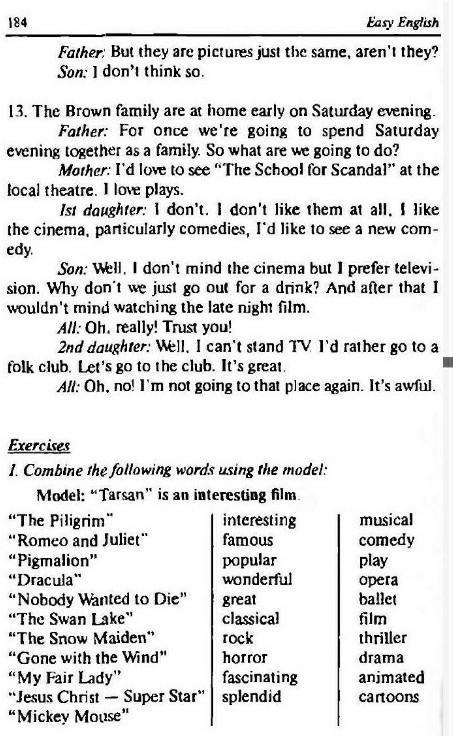Предмет: Английский язык,
автор: AlexanderBendorvish
Будьте добры. Помогите пожалуйста. Надо делать только 1-задание.
Приложения:

Ответы
Автор ответа:
0
1" The Piligrim" is a splendid musical.
2. "Romeo and Juliet" is a wonderful play.
3. "Pigmalion" is a perfect play.
4. "Dracula" is a horror thriller.
5. "Nobody Wanted to Die" is a great film.
6. "The Swan Lake" is a classical ballet. 7. "The Snow Maiden" is a fascinating opera.
8. "Gone With the Wind" is a famous drama.
9. "My Fair Lady" is a popular musical.
10. "Jesus Christ - Super Star" is a rock opera.
11. "Mickey Mouse" is a famous cartoons.
Похожие вопросы
Предмет: Русский язык,
автор: tan3echkaleta
Предмет: Другие предметы,
автор: Назим1994
Предмет: Русский язык,
автор: ChipGamer
Предмет: Алгебра,
автор: Rafaelnodat1
Предмет: Русский язык,
автор: Ученик3300